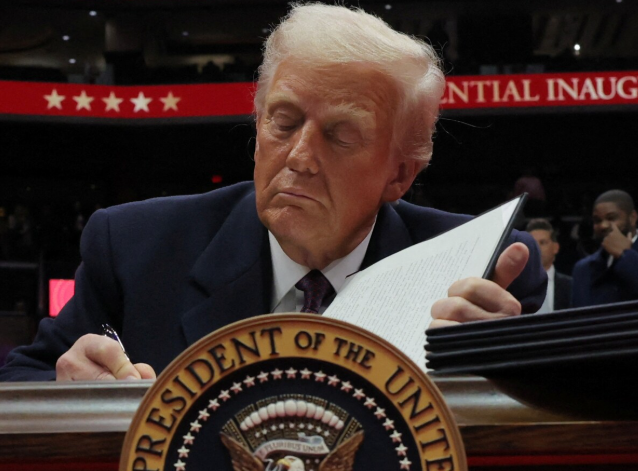On his first day back in office during his second term as President of the United States, Donald Trump signed a series of executive orders aimed at profoundly reforming the federal government. Among these measures, the order titled “Protecting the Meaning and Value of American Citizenship” stands out, as it seeks to redefine the traditional concept of birthright citizenship protected by the 14th Amendment to the Constitution.
What Is Birthright Citizenship?
Birthright citizenship, recognized by the 14th Amendment since 1868, automatically grants U.S. citizenship to any person born in the country, regardless of their parents’ immigration status. This policy has been a cornerstone of the U.S. legal system and has defined the nation’s identity as an inclusive society.
The new executive order proposes a more restrictive interpretation. According to this measure, only the children of U.S. citizens or lawful permanent residents would qualify for automatic citizenship, excluding those born to undocumented immigrants or individuals with temporary visas.
Reactions and Impact
The proposal has sparked intense debate in political, social, and legal circles, with potential implications for millions of people. Key points include:
Immediate Response:
- Two dozen states and cities, including Washington, D.C., and San Francisco, have filed lawsuits to block the order, arguing that the president lacks the authority to change a constitutional interpretation through an executive order.
- Civil rights organizations, such as the American Civil Liberties Union (ACLU), have labeled the measure unconstitutional, discriminatory, and divisive.
Impact on Immigrants:
If implemented, the order would affect approximately 300,000 children born each year to undocumented parents in the United States, depriving them of citizenship.- This could create a population of stateless individuals facing legal and social barriers.
Political Division:
- While Republicans view the measure as a necessary step to strengthen immigration laws, Democrats consider it a direct attack on the constitutional principles of the country.
Legal Aspects and Judicial Challenges
The central legal debate revolves around the phrase “subject to the jurisdiction” in the 14th Amendment. Historically, this clause has been broadly interpreted to guarantee citizenship to all individuals born on U.S. soil. The new order challenges this interpretation, but legal experts agree that a change of this magnitude would require a constitutional amendment, not an executive order.
The case is already in the courts and is expected to reach the Supreme Court. With a conservative majority on the bench, the outcomes could be unpredictable, but any decision will have a lasting impact on the country.
Future Perspectives and Consequences
If implemented, the measure could have far-reaching repercussions:
- Creation of new legal barriers: For children of immigrants, who would lack access to U.S. citizenship or citizenship in their parents’ country of origin.
- Transformation of the immigration system: Redefining who has the right to formally belong to the country.
- Increased social and political tensions: Potentially exacerbating polarization among different sectors of the population.






No comment